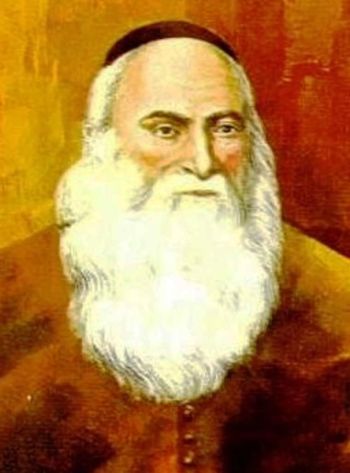Difference between revisions of "Isaac Abrabanal (1437-1508)"
Tao alexis (talk | contribs) |
Tao alexis (talk | contribs) m (Tao alexis moved page Abrabanal, Isaac (1437-1508) to Isaac Abrabanal (1437-1508)) |
||
| (3 intermediate revisions by the same user not shown) | |||
| Line 1: | Line 1: | ||
| − | [[File:Isaac Abrabanal.jpg|right|350px|thumb|]] | + | [[File:Isaac Abrabanal b.jpg|right|350px|thumb|]] |
| − | '''Isaac Abrabanel''' was a Jewish statesman, philosopher and Bible commentator born at Lisbon, Portugal. King Alfonso V | + | '''Isaac Abrabanel''' was a Jewish statesman, philosopher and Bible commentator born at Lisbon, Portugal. Born in Lisbon, Portugal, his remarkable political acumen didn't go unnoticed, as King Alfonso V recognized his talents and appointed him as his treasurer. Abrabanel served in this capacity until the reign of John II. Unfortunately, his political career took a tumultuous turn when he faced accusations of conspiracy, compelling him to flee to Castile in 1483. |
| − | + | In Castile, Abrabanel managed to rebuild his fortunes in Toledo and garnered the favor of the royal court. However, his life was marked by turbulence, and in 1492, the infamous year when Ferdinand and Isabella ordered the expulsion of Jews from Spain, he was once again forced into exile. | |
| − | Abrabanel's | + | Abrabanel's journey led him to Naples, where he established himself. Sadly, just three years later, he suffered a devastating loss when the city fell to the French, resulting in the forfeiture of all his possessions. This period saw him wandering from one city to another, searching for stability. |
| − | [[Category: Historical Persons]][[Category: Religious Leaders]] | + | Ultimately, he found a haven in Venice, where he became a valuable asset to the Republic, serving in the diplomatic corps. |
| + | |||
| + | == Significance == | ||
| + | Abrabanel's enduring legacy is rooted in his scholarship, particularly his explanatory commentaries on nearly all the books of the Old Testament. He departed from conventional methods of interpretation, opting to examine each book of the Bible as a whole, considering its teachings in the context of the political and economic circumstances of its time. His works have found resonance with both Jewish and Christian theologians. Notably, his writings on the concept of salvation reflect his profound belief in the imminent arrival of the Messiah. Isaac Abrabanel passed away in Venice in the year 1508. | ||
| + | |||
| + | |||
| + | [[Category: Historical Persons]][[Category: Religious Leaders]][[Category: Reviewed]] | ||
Latest revision as of 04:05, 8 November 2023
Isaac Abrabanel was a Jewish statesman, philosopher and Bible commentator born at Lisbon, Portugal. Born in Lisbon, Portugal, his remarkable political acumen didn't go unnoticed, as King Alfonso V recognized his talents and appointed him as his treasurer. Abrabanel served in this capacity until the reign of John II. Unfortunately, his political career took a tumultuous turn when he faced accusations of conspiracy, compelling him to flee to Castile in 1483.
In Castile, Abrabanel managed to rebuild his fortunes in Toledo and garnered the favor of the royal court. However, his life was marked by turbulence, and in 1492, the infamous year when Ferdinand and Isabella ordered the expulsion of Jews from Spain, he was once again forced into exile.
Abrabanel's journey led him to Naples, where he established himself. Sadly, just three years later, he suffered a devastating loss when the city fell to the French, resulting in the forfeiture of all his possessions. This period saw him wandering from one city to another, searching for stability.
Ultimately, he found a haven in Venice, where he became a valuable asset to the Republic, serving in the diplomatic corps.
Significance
Abrabanel's enduring legacy is rooted in his scholarship, particularly his explanatory commentaries on nearly all the books of the Old Testament. He departed from conventional methods of interpretation, opting to examine each book of the Bible as a whole, considering its teachings in the context of the political and economic circumstances of its time. His works have found resonance with both Jewish and Christian theologians. Notably, his writings on the concept of salvation reflect his profound belief in the imminent arrival of the Messiah. Isaac Abrabanel passed away in Venice in the year 1508.
